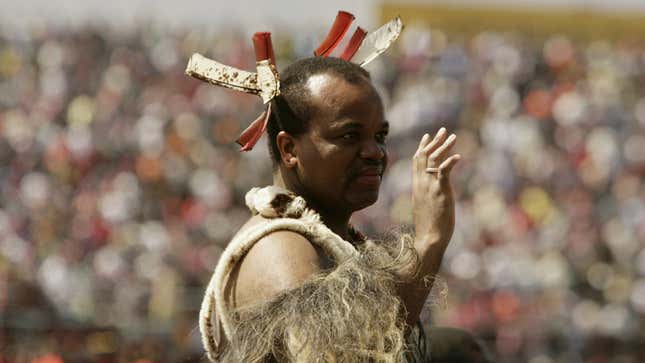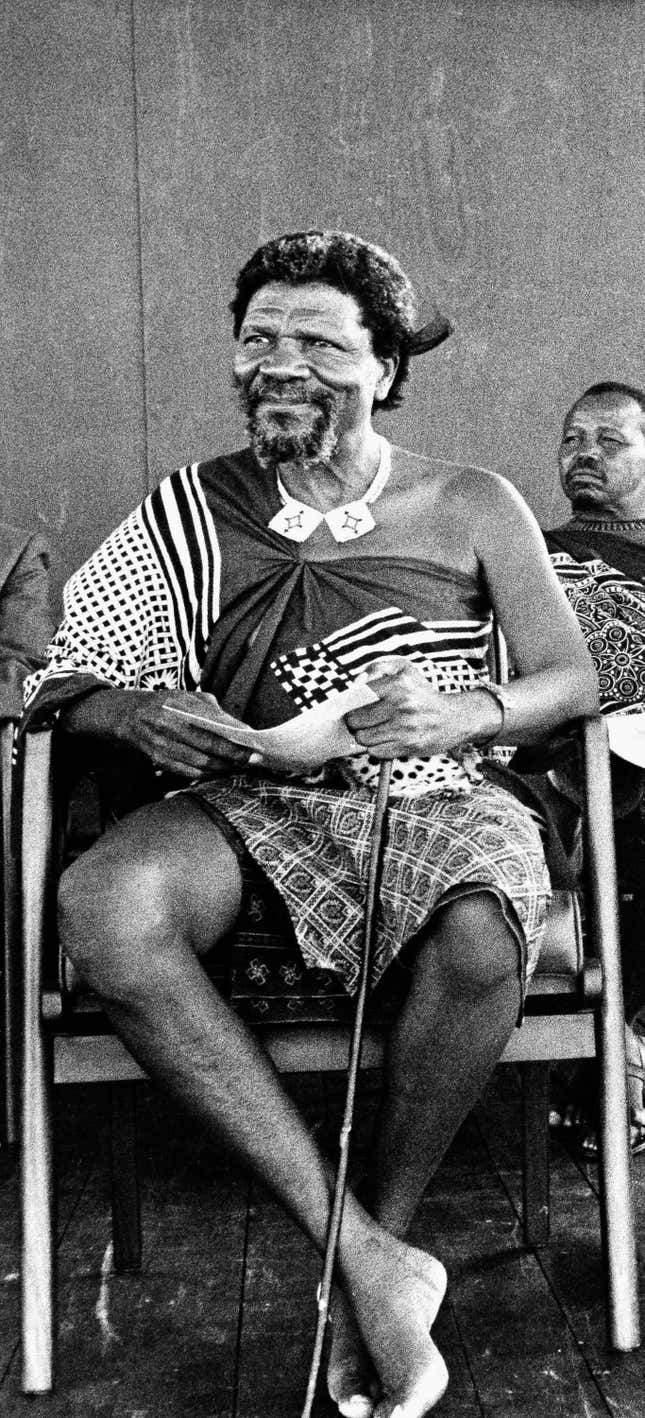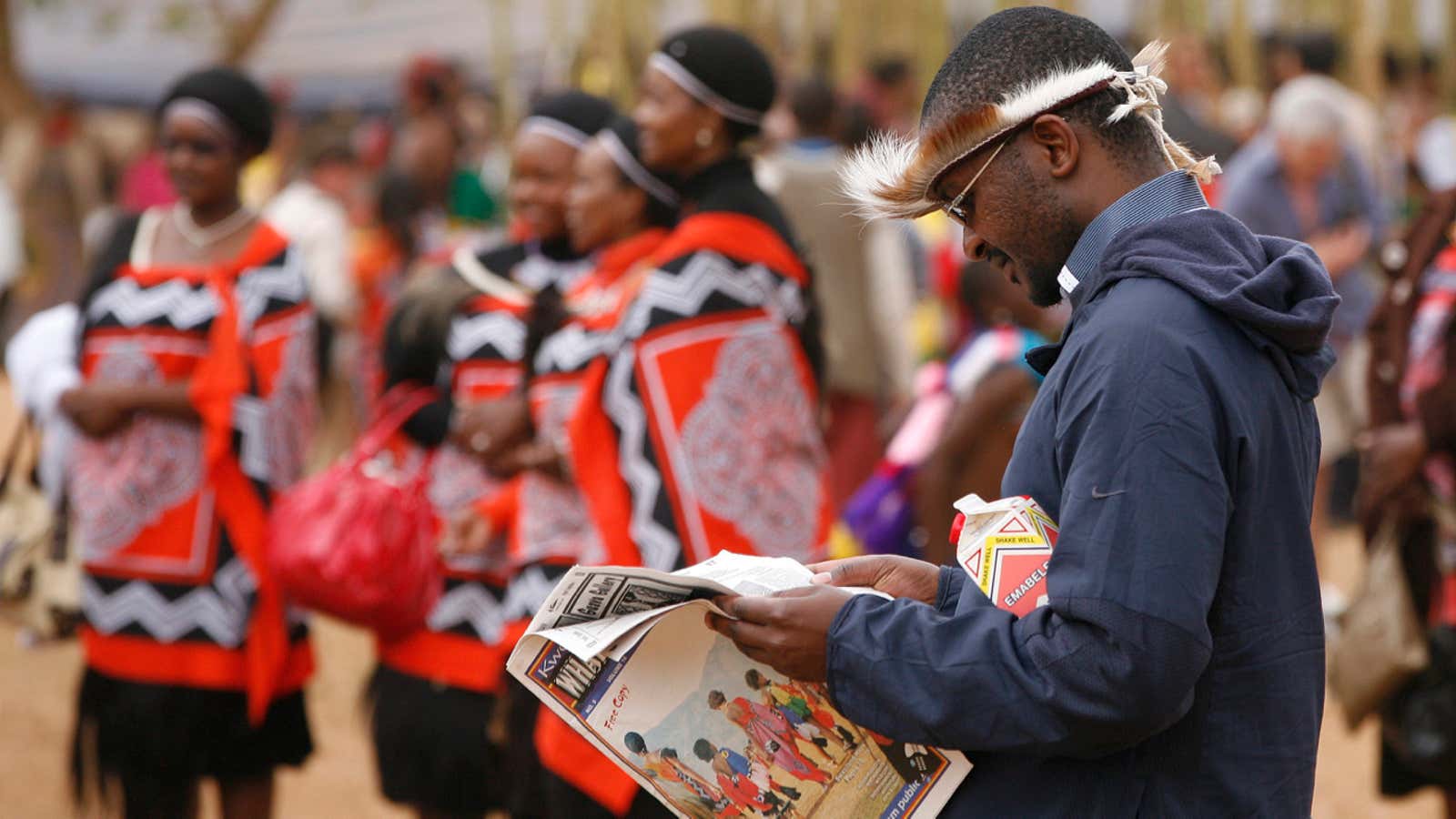Swaziland is no more. The tiny country between South Africa and Mozambique will now be known as the Kingdom of eSwatini.
To mark the country’s 50 years of independence, King Mswati III announced on April 19 that Swaziland—an anglicized combination of the name of his people and, well, the word land—would henceforth be known as eSwatini—siSwati for place of the Swati, the correct name for the people and the language.
And because it’s an absolute monarchy, it seems to have been that easy to enact such a momentous change. Now, the world will wait and see how quickly maps, signs and embassies will have to follow suit. Google Maps, for example, has yet to make the change. The day of the announcement also happened to be King Mswati’s 50th birthday.

“I would like to announce that Swaziland will now revert to its original name,” the king said. “African countries on getting independence reverted to their ancient names before they were colonized. So from now on the country will officially be known as the Kingdom of eSwatini.”

The change was aimed at shedding the country’s British colonial past. Swaziland was a British protectorate from 1871 until its independence on Sept. 6, 1968. It was led by King Sobhuza II, who suspended the constitution in 1973 because he believed the colonial document did not reflect the will of the people. Since then, the king has enjoyed absolute power. His son, the current king, has ruled since 1986, suppressing any attempts at multiparty democracy.
But a change in name might have been the most pressing thing on the citizens’ minds in recent years.
The country and the king’s birthday celebrations were marred by protests. Just last week, police fired rubber bullets at around 2,000 people who marched against spending public funds on the lavish 50-50 Jubilee celebrations.
Despite the king’s personal wealth of an alleged $200 million, citizens were asked to contribute to his birthday party. In a country of 1.1 million people, where 63% live below the national poverty line, even a small donation is a large ask. Especially so for the 52% of the country who are under the age of 20, many of them orphans of one of the world’s worst HIV/Aids pandemics.
